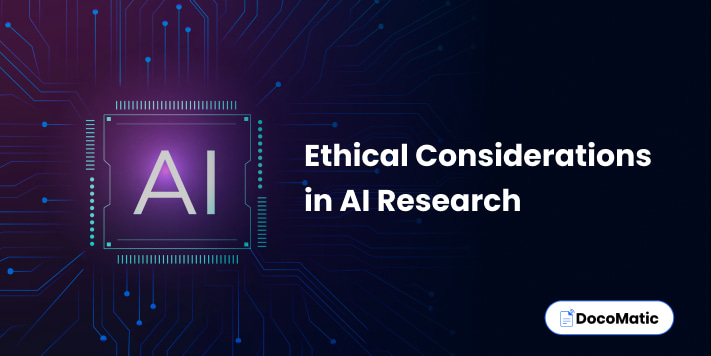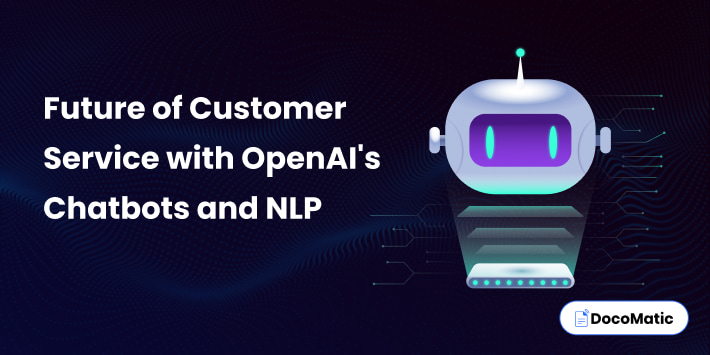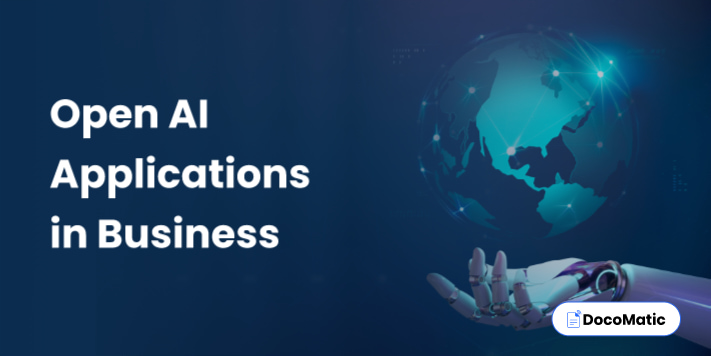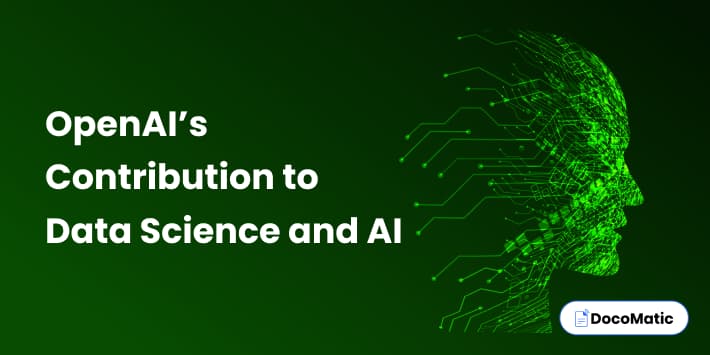The use of artificial intelligence (AI) is on the rise in many industries, from medicine and banking to transportation. While AI might drastically improve our daily lives and the way we do business, it also raises some serious ethical questions.
Without adequate regulation, AI systems might reinforce existing prejudices, invade users’ privacy, and even cause harm. Therefore, it’s so important for those working in artificial intelligence to think about the consequences of their projects.
When it comes to advocating for ethical AI research, OpenAI has been at the forefront. OpenAI’s goal is to develop trustworthy AI systems that can help all people. We will discuss OpenAI’s approach to some of the ethical issues that arise in the course of artificial intelligence research.
Moreover, we’ll also take a look at real-world examples of ethical concerns that have arisen during AI research and discuss how OpenAI has addressed them.
Table of Content
About AI and its Evolving Technology
The term “artificial intelligence” (AI) is used to describe the study and implementation of computer systems capable of learning, problem-solving, and making decisions in situations where such abilities would traditionally fall to human beings.
Due to developments in processing power, data storage, and algorithm development, artificial intelligence (AI) technology has gone a long way from its start in the 1950s. Self-driving vehicles, virtual assistants, and individualized healthcare are just a few of the modern uses for artificial intelligence.
The capacity to glean insights from massive datasets is a cornerstone of artificial intelligence technologies. A subfield of artificial intelligence known as machine learning can sift through mountains of data in search of useful patterns on which to base conclusions. One kind of machine learning is called “deep learning,” and it mimics the way the human brain operates by employing artificial neural networks.
Flexible and adaptive artificial intelligence technology is also developing. Another kind of machine learning, reinforcement learning, relies on trial and error to educate an artificial intelligence system on how to carry out a certain job. Artificial intelligence (AI) systems may learn and adjust to novel circumstances with this method.
There are positive applications for AI technology, but some people worry about its morality. An increasing number of people are worried that more complex AI systems could be misused to further discrimination, invade personal privacy, or inflict violence. Organizations like OpenAI are paving the way in advocating for responsible AI development by emphasizing the need for researchers and developers to give thought to the ethical implications of their work.
What is the Significance of Ethical Considerations in AI Research?
Ethical issues in artificial intelligence research are crucial. As much as artificial intelligence (AI) has the potential to revolutionize many industries and enhance people’s lives, it also poses some very real ethical challenges. It is possible for AI systems to be discriminatory, breach users’ privacy, and even be harmful. As a result, it’s crucial that those working in the field of artificial intelligence think about the moral implications of their discoveries.
Ethical concerns about prejudice and unfairness are particularly important in the field of artificial intelligence development. When AI systems are educated with biased data, it might perpetuate those biases and provide discriminating results. Facial recognition algorithms, for instance, have been demonstrated to be less accurate for persons with darker skin tones, which can have severe repercussions in law enforcement and other contexts.
Privacy and safety are also major ethical factors to think about. Because of the volume of data that AI systems may gather and analyze, including personal information, their use has sparked privacy concerns. It is also possible for AI systems to be hacked or put to bad use, putting people and businesses at risk of harm.
Ethical issues in artificial intelligence research should also prioritize openness and explainability. When dealing with more sophisticated AI systems, it might be difficult to fathom how those algorithms arrive at their conclusions. Because of this, people may lose faith in AI systems and stop using them.
And last, duty and accountability are important ethical issues in the field of artificial intelligence research. There is a growing difficulty in assigning blame due to the increasing autonomy of AI systems. In the case of driverless cars, for instance, it may be difficult to determine who is at fault in the event of an accident or other problems.
The development and responsible application of AI systems rely on researchers taking ethical concerns into account. There is great promise for AI to improve people’s lives, but the field must go forward in a way that prioritizes ethical principles like openness, privacy, and responsibility. Researchers and developers of AI may contribute to a brighter future for everybody by keeping these ethical concerns in mind.
What are the Ethical Considerations in AI Research?
Here are some ethical considerations that should be kept in mind by AI researchers and developers while working with AI technology.
Bias and Fairness: These are major ethical concerns in the field of artificial intelligence development. Data biases can be perpetuated by AI systems and may lead to unfair and discriminatory results. This can have major consequences in law enforcement and other fields, as studies have shown that facial recognition algorithms are less reliable for persons with darker skin tones. Therefore, scientists working in the field of artificial intelligence must take care to guarantee that their creations are objective and unbiased.
Privacy and Security: Privacy and safety are also major factors to consider from an ethical standpoint. Anxieties over privacy are warranted due to the fact that AI systems may gather and handle massive quantities of data, including personally identifiable information. It is also possible for AI systems to be hacked or put to bad use, putting people and businesses at risk of harm. So, researchers in the field of artificial intelligence must prioritize designing safe and secure systems that protect users’ personal information.
Transparency and Explainability: The increasing sophistication of AI systems makes it difficult to know or may not get their conclusions. Without transparency and explainability, people may lose their faith and trust in AI and its reliability. Hence, it is crucial for researchers in the field of artificial intelligence to create systems that can be easily understood and explained by end users.
Accountability and Responsibility: As AI systems become more autonomous, it can be challenging to determine who is responsible for their actions. For example, in the case of autonomous vehicles, it can be unclear whether the manufacturer, the programmer, or the user is responsible for accidents or other issues. AI researchers must consider the issue of accountability and responsibility when designing AI systems.
We understood that when studying AI, it is important to keep ethical concerns in mind. Researchers and developers in the field of artificial intelligence (AI) need to be mindful of the ethical implications of their work and create trustworthy, open, responsible, and secure systems. Such things are important to guarantee that AI is created and deployed in a way that benefits society as a whole.
List of Examples of Ethical Issues in AI Research
Here are some examples of ethical issues that may raise concerns in AI research.
AI used in surveillance: Using AI in surveillance has raised ethical concerns about privacy and civil liberties. Such an example is facial recognition technology that can be used to track individuals with or without their consent, ultimately leading to violations of their privacy.
Use of AI in decision-making: AI systems used in making important decisions are another example of ethical issues, such as determining eligibility for loans or employment. This could have significant impacts on people’s lives. Here, the ethical concern is that the decisions made by AI systems may be unfair or discriminatory.
Ownership of AI-generated content: Since AI systems can generate creative works like music, art, and literature, questions may arise about who owns the copyright and intellectual property rights by doing such works.
AI in the healthcare industry: The extensive use of AI in healthcare raises ethical concerns regarding the privacy and security of patient’s medical data and history. Also, there are many concerns about the accuracy and reliability of AI systems when it comes to making medical diagnoses and treatment recommendations.
AI research raises several ethical issues that must be addressed to ensure that it is developed and used responsibly. It is essential for AI researchers as well as developers, to consider these ethical issues and work towards creating a system that is fair, transparent, secure, and safe.
FAQs
The application has several benefits as it can help organizations to operate efficiently, produce better products, minimize harmful environmental impacts, increase public safety, along with improving humans.
It has basic principles for using AI, and its algorithms, like AI, are not biased, good for the human & planet. AI existence should not harm any citizen.
Here is the list of guidelines that should be followed by AI systems.
- Robust safety in technical terms
- Technical robustness and safety
- Human data privacy and governance
- Transparency
- Non-discrimination and fairness
Conclusion
OpenAI has made major efforts to address these concerns because of the importance of ethical implications in AI research. It is crucial to keep investigating the moral implications of AI development. By thinking about how AI systems could affect people morally, we can make sure they are built and utilized in a way that benefits everyone. It does not have space for prejudice, discrimination, or violence.
In terms of ethics in AI research, OpenAI has been an inspiration as it has proven its dedication to developing equitable, safe, and reliable AI systems by emphasizing these principles in its work. As further evidence of its dedication to responsible AI development, the corporation is working on explainable AI and has decided not to divulge some AI technology.
OpenAI’s approach offers a potential example for other firms in the area. However, much more effort is needed to solve the ethical problems of AI research and development. Ethical concerns must be addressed collaboratively if we are to create and deploy AI systems in a way that serves the greater good.






